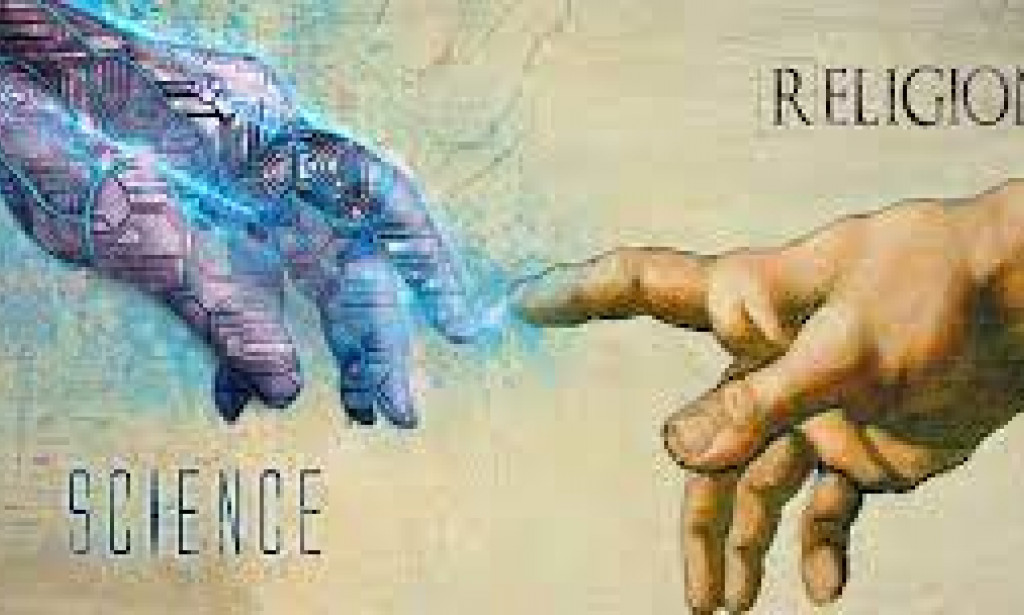Introduction
Here, inter-connection between religion and science was analyzed in some degree of comparison (not as whole). The possible interaction between science and religion was assessed by using some blocks of concepts such as nature and justification of science’s and religion’s knowledge; practise of science and religion; historical and contemporary beneficiary relationships between science and religion; scientific and religious’ world view, and finally institutional independency of both science and religion was discussed. Over all ontological and epistemological relationships between science and religion was assessed
Nature of Scientific Knowledge, and the Interpreted Religious’ Knowledge
The nature of well established scientific fact somewhat infallible like religious knowledge, other nature of scientific theories or law (in general scientific knowledge) are falsifiable, changeable (not absolute true). The knowledge province of religion is ultimate and is absolute, based on the revelation–absolute truth and unchanged. Here, what is ultimate and absolute are the very abstract nature of religious knowledge contained in Devine revelation. However, the interpretation of abstract knowledge in revelation is not an absolute and can being modified with the advancement of science and technology. This means that the interpretations that have given to each verse in Devine revelation by human being have a possibility to being modified. To sum up, the nature of both scientific knowledge and the interpreted religious knowledge are changeable or modifiable.
Scientific Practice (Doing Science) and Religious Practice
Here, compatibility between science and religion was assessed at practical level. In other word, do individual person can be both scientist and religious person or do religious practice have domain that can be overlapped with scientific practice? There is misconception what religious practice means among different believer in different religion. Most of fundamentalist define the action of religious to narrow line only to action of praying, just go to holy house and celebrate religious celebration. In my opinion religious practice including every things (including doing science) we do to lead our life in law full manner. In this respect religion and science interacted at practical level. Beside, a person can still be religious and a scientist at the same time. One may even use their religion as a justification to further pursuit their interest in science. Science and religion may not be separate compartments of society; individual can be scientist as well as religious person.
Justification of Scientific and Religious Knowledge
The basic impetus for the problem of faith and reason comes from the fact that the revelation or set of revelations on which most religions are based is usually described and interpreted in sacred pronouncements, either in an oral tradition or canonical writings, backed by some kind of divine authority. These writings or oral traditions are usually presented in the literary forms of narrative, parable, or discourse. As such, they are in some measure immune from rational critique and evaluation. However, most religious traditions allow and even encourage some kind of rational examination of their beliefs. Both scientific and religious (most) knowledge allow their verification rationally.
Historical and contemporary interaction between science and religion
Historically interaction between religion and science
Historically (in past) Strong statements have described Christianity religious as the fountainhead of modern science. Equally strong statements have called it the greatest opponent of scientific progress. Yet an enduring gift from the Middle Ages was the powerful idea of “God’s Two Books” — knowledge from Scripture and knowledge about the physical world both come from God and therefore cannot be contradictory. Still, the era’s greatest scientific breakthroughs came from Roman Catholics, especially Copernicus, with his theory that planets moved around the sun, and Galileo, who offered astronomical evidence to support this theory. The judgments by the Vatican against Galileo in 1616 and 1633 may have had as much to do with philosophical controversies, political machinations, and the state of observational data as with specifically theological objections. For their part, both Martin Luther and John Calvin denounced Copernicus’ heliocentric views as heretical (though a few other Protestants were early supporters of the new picture). Moreover, Protestant attacks on traditional authority could stimulate an anti-intellectualism that favored direct inspiration by the Holy Spirit over disciplined human learning. The leaders in what historians call the Scientific Revolution were usually friendly to the Christian faith.
Contemporary interaction between science and religion
In modern era, in which science and technology advanced, religion has benefitted from science and technology. For example, the development of telescope helped Muslim believer to start fasting at the same time globally, during fasting month. Similarly, there are some verses of holy Qur’an of which original interpretation (explanation) modified into new more clarified explanation after technique or equipment used to identify the Sex of baby (M or F) in mother (pregnancy) had developed. Contemporary, Science can get benefit from religious’ explanation, on issues it cannot be able to explain, like what science call supernatural, if only scientists interested in. These are some things about which there will be no rational knowledge. (The existence of God, free will, the eternity of the soul, etc.) Which science and religion intersect, focusing on creation, divine action, and human origins. Religion (more correctly, spirituality in general) also seeks truth, and among other things endeavors to handle the moral questions that science cannot.
Scientific and Religious’ World view
Here, I presented the Relationship between science and religion by using certain identified set of essential characteristics of scientific and religious worldviews and other character then arguing on the basis of these characteristics for claims about a relationship of conflict or compatibility between them. Science, to some extent, and religion, to a much larger extent, are cultural phenomena that are too diverse in their expressions to be characterized in terms of a unified worldview. Worldviews standard are a composite of ontological, epistemological, anthropological, ethical and theological .These ideas are reflected in the definition of scientific worldview is an overallperspective on life that sums up what we know aboutthe world, how we evaluate it emotionally, and how werespond to it volitionally’. Specific areas where religious and scientific worldviews may interact – questions about the nature of faith, the belief in a God or Gods, the authority of sacred texts, the relationship between scientific and religious conceptions of the mind/soul, and the relationship between scientific and religious understandings of moral behavior and other. Most researcher founded interaction between religion and science in those domain but I excluded comparison between science and religion in those domain as demarcated definition of science do not allow itself to deal with those question.
Immanuel Kant (1724-1804) Science, and all rational discourse, is limited to the realm of possible experience. The distinction between phenomena (things as we perceive them) and noumena (things as they are in themselves). There are some things about which there will be no rational knowledge. (ex. The existence of God, free will, the eternity of the soul, etc.) Which science and religion intersect, focusing on creation, divine action, and human origins.
Summary
Science is grounded with doubt and tries to answer question step by steps. The knowledge province of science is proximate (Corresponding theory). Moreover, science has got a self-correcting mechanism. Scientific believe only on valid things that can be subjected to tests through rigorous methods. Philosophers of science have attempted to demarcate science from other knowledge-seeking endeavors, in particular religion. For instance, Karl Popper claimed that scientific hypotheses (unlike religious ones) are in principle falsifiable. This means that Popper believed that in order for a theory to be scientific, it had to be falsifiable. Religion based on faith. The knowledge province of religion is ultimate and is absolute, based on the revelation–absolute truth and unchanged. Faith is belief in inspiration, revelation, and authority. For a long time, there has been a debate going on about what constitutes the relationship between religion and science.
There are many different ways to look at the connections between religion andscience. In this Essay, therefore, varies degrees of conflict and compatibility of Faith (religious) with rationality (science) was analyzed. Specifically, the possible interaction between science and religion was assessed by using some blocks of concepts such as nature and justification of science’s and religion’s knowledge; practise of science and religion; historical and contemporary beneficiary relationships between science and religion; scientific and religious’ world view, and dichotomy. The nature of both scientific knowledge and the interpreted religious knowledge are changeable or modifiable.Similarly,both scientific and religious (most) knowledge allow their verification rationally.Historically interaction between science and religion, Christianity religious as the fountainhead of modern science and it the greatest opponent of scientific progress. In modern era, in which science and technology advanced, religion has benefitted from science and technology.Whereas science and religious are independent at institutional level and also on ontological/metaphysical issues with which science is too mature to deal.


You must be logged in to post a comment.